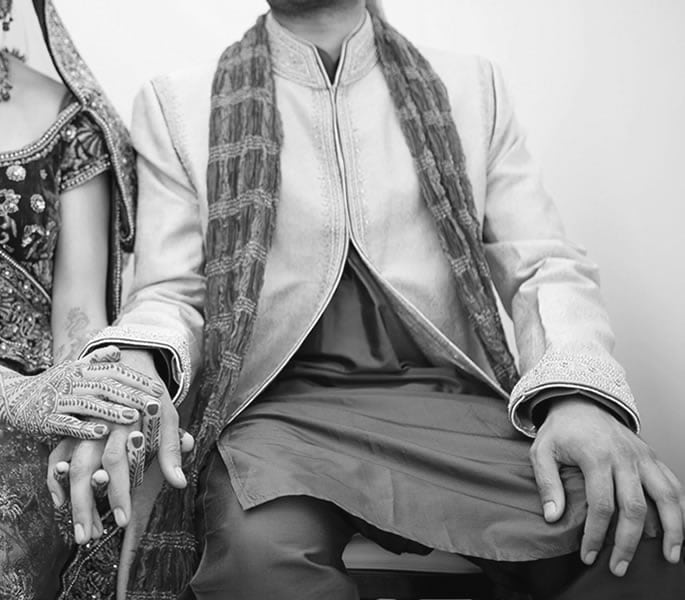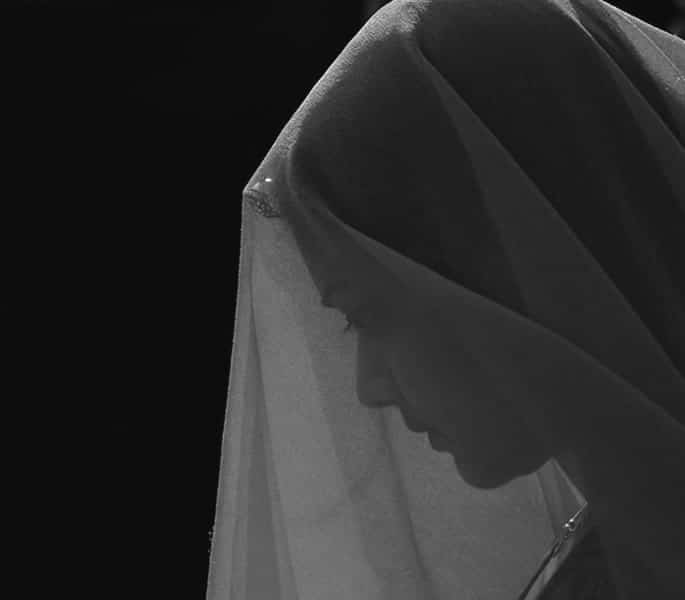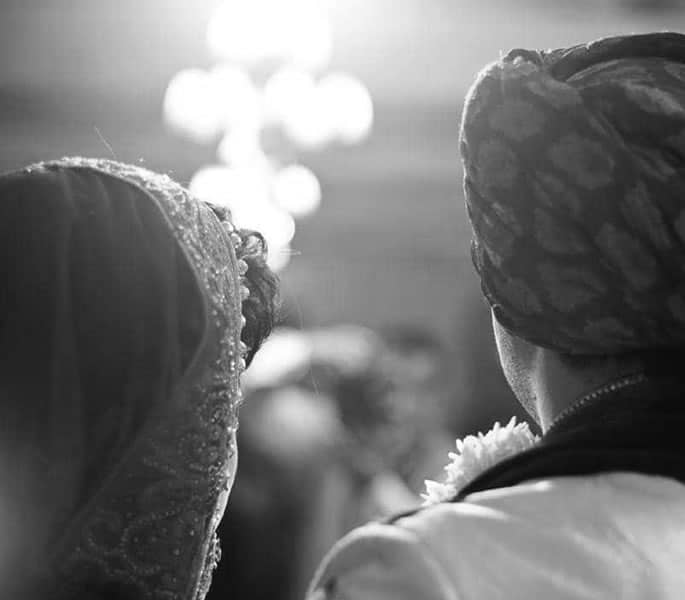Parents, relatives and matchmakers are often guilty of non-full disclosure
Having an arranged marriage is still a practice widely accepted in South Asian and British Asian communities. But when the mental health of one person is withheld during the ‘arranging’, it leads to many issues within such a marriage.
Despite advances in an acceptance somewhat of ‘love marriages’, arranged marriages are still prominent, which means that so is this issue of matches of partners with a mental illness.
With mental health getting a lot more awareness compared to the past, it is definitely helping people who suffer from mental health issues to get support.
However, when it comes to arranging a marriage due to it’s ‘invisibleness’ it is one factor which is often ‘kept quiet’ which results in difficult relationships and marriages.
Many often even ending up in divorce, usually instigated by the side not being told the truth.
If someone has an obvious physical disability or impairment, then naturally that would be easier to observe but those suffering from a mental illness results in complex scenarios.
Keeping it Quiet
Parents, relatives and matchmakers are often guilty of non-full disclosure on the side where the partner who suffers from such issues.
Even the individual getting married, may keep the issue quiet from the prospect in an arranged marriage situation.
This is often related to the stigma attached to mental health within South Asian communities.
Mental health problems such as depression, bipolar, obsessive compulsive disorder (OCD), anxiety and even eating disorders are kept quiet.
The withholding of such information about young Asian girls and women tends to be more common. Primarily, due to the fear in parents that ‘no one will marry their daughter’ if such details are disclosed.
Asian men with mental health issues are also subject to the same but being males can override it as “not being a huge problem” or ‘play it down’ in arranged marriage meetings.
But for an Asian woman to disclose it in this way, the chances are that it would not be ‘accepted with open arms’ by the other party.
Therefore, unless found out, many arranged marriages do take place with this deceit intact.
With the use of marital websites and apps, there is an increasing means of deceiving the other person and keeping information withheld. Whereas, in the past, family background checks and details about the individuals marrying were seen as very important.
Approaching this in a typical Desi cultural way, parents who have daughters immediately begin to think about their marriages.
Therefore, a daughter with mental health issues means it would make it harder to find her a suitor through an arranged marriage.
This paves the way to make it very difficult for women with such illnesses to settle down. Unless they find someone themselves.
Sangeeta, aged 27, a bipolar sufferer, says:
“I had a few marriage interviews with guys.
“It would all go very well until I mentioned my bipolar. Then you would see the conversation change.”
“One guy I met this way even told me he had suffered from mental health issues but still said no to me.
“I think it is very hard to find someone who will accept you easily if you suffer from any serious mental health issue in our society.”
Reactions from the ‘Other Partner’
The common reaction from the ‘other partner’ is that either they do not understand what is wrong with their wife or husband or they feel angry and deceived.
Upon realisation, the outcome of the marital relationship goes a number of ways depending on if you are a man or a woman.
For men, it is much easier to walk out of such a marriage and then find someone ‘normal’ even via the arranged marriage route again.
For women, it’s not that simple. If a woman decides to divorce, either way, she will still have a stigma attached to her. Even, if she is the innocent party.
So, most women, especially, the older generations, just accepted the man with his illness as part of their life. A similar view was taken by men too with the same outlook.
But today, in the internet age, the reactions from an unhappy partner can be pretty blunt with tolerance levels very low and the aim to seek divorce as quickly as possible.
Shezad, a depression suffer, says:
“I got married to a woman from Pakistan. I told her when we met there that I had depression. She said it was no issue and happy to marry me.
“However, once she arrived in the UK and settled, I noticed her tolerance and behaviour towards me gradually change.
“She said I was not like ‘other’ men and had no confidence to be a proper husband.”
“Eventually, it got so bad that it made me worse and we divorced.
“Her lack of understanding completely broke my trust in marrying again.”
Abuse and Torment
Those that stay in such arranged marriages with one party suffering from a mental illness are bound to have domestic issues perhaps more than normal couples.
There have been many cases in the past of emotional and even physical abuse of marital partners who suffer from mental health problems.
The person suffering from a mental illness is usually viewed as the ‘deceitful one’ or ‘invalid’ and therefore, the other partner may be just staying with them to use and abuse them for their own needs.
Taking the scenario of a woman with mental health issues married to a man with none, he could or would put a lot of expectancy on his wife.
Using her deceit towards him, he would take advantage of every opportunity he has to use or abuse her.
This includes her doing all the domestic chores, not being allowed to have a say in the marriage and expected to even give sex on demand.
And if she does not comply. She would be subject to verbal and physical abuse and violence. Or threatened with divorce or being taken back to her parents home.
Ranveer, a student, had a friend who went through this, saying:
“My friend had mental health problems through most of her life. Her parents worryingly married her off after college.
“Her husband was from India and very backward.
“After the first few months, he noticed she was mentally unwell. So, he began to abuse and use her every which way possible.
“He made demands of her and expected her to do as told every time.
“Night and day he treated her literally like a slave.”
“He was a womaniser and even spoke to women on the phone in front of her, knowing she cannot do anything.
“He provided her with no financial support to her and the two children they had.
“A few years later she had a major breakdown. Resulting in her going to hospital and being admitted.
“She told a nurse what she was going through and was then given support to leave the marriage with her children.”
Then there is the scenario of a man suffering from mental illness being abused and tormented too.
Where the woman would take advantage of him financially and emotionally. Thus, getting him to agree with everything she says and wants.
Giving him very little confidence to speak against her and agreeing with all decisions.
Jahangir came from Pakistan and was married off to a cousin in the UK. However, no one disclosed that he suffered from mental illness.
Jahangir describes what happened, saying:
“It was not until after the marriage, my wife realised what was going on. That I was mentally not well.
“She knew the last thing I wanted was to return to Pakistan. So, she took advantage of the marriage to me.
“She told me I have to do as she says and I could never question her on anything she did or where she went.
“I had to do all the household chores including washing, cooking and cleaning.
“When she came back from work I made sure her dinner was cooked and she would get angry if it did not taste good.
“I also realised she was sleeping with other men because she did not hide her messages or calls on her phone. She did it in front of me.
“Being mentally ill is not my fault but through this arranged marriage my life is not that of a respected partner.”
Many arranged marriages are imbalanced in this way and all because one party was not willing, to tell the truth, or simply that the truth is being abused.
Many have seen their mental health conditions deteriorate in such marital conditions. Making them either more dependant on their partners or ending up in mental health services care long term.
Is There a Solution?
If anything is going to change for the better, then the saga of arranged marriage and mental health has to change.
The ideal solution to this problem is that individuals seeing each other during the arranged marriage process do need to come clean about their state of mental health.
Yes, it might prohibit many offers but at least it is liberating for the truth to be in front of the other person.
Therefore, at least the person is clear about who they are potentially marrying and make an informed decision about their mental health.
For this to happen in Desi society it will be a tremendous step in the right direction to give arranged marriage and mental health an opportunity to flourish together in a positive way.
However, the reality of it happening is all dependant on the honesty of the people involved and their families agreeing with it too. Which let’s face it is never an easy feat. in Desi communities.
Alternatively, arranged marriages need to be seen as not the way forward for such marriages between someone mentally unwell and another person who is ‘normal’. Hence, the practice needs to stop to make such matches.
Hence, possibly allowing the chance for arranged marriage matches to take place between those of the same or similar mental health status. Which at least is more ‘like with like’.
Ethically it may be challenged for increasing stigma around mental health sufferers to be grouped separately, even for arranged marriages.
But surely, this would be a solution that helps those get together in matrimony, who otherwise would either end up in an abusive marriage or never have the chance of finding a marriage partner in life.
Therefore, arranged marriage and mental health are in its own way is complex due to the way deceit plays a major role.
But it can be simplified, if only the truth was told more often in arranged marriage meetings and matches are made to give hope to those who feel they will never marry due to their mental illness.


































































